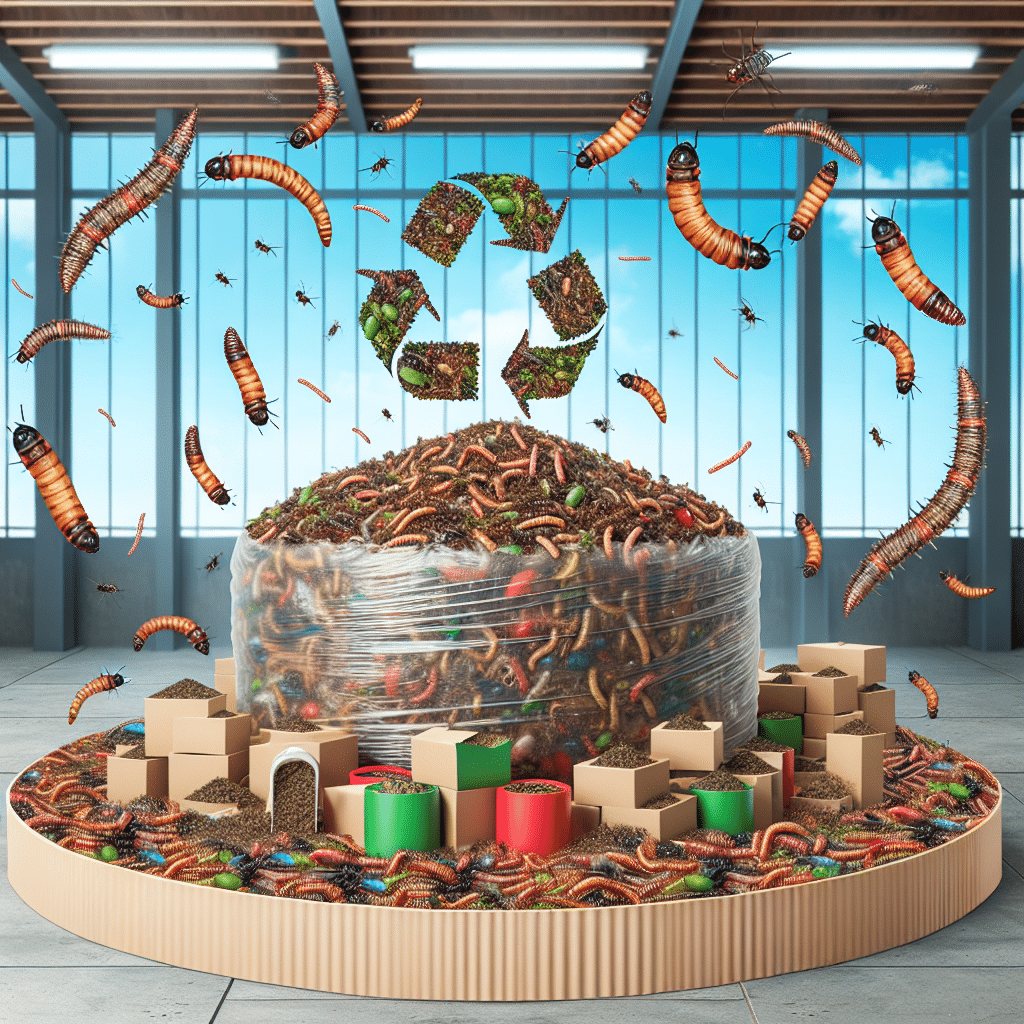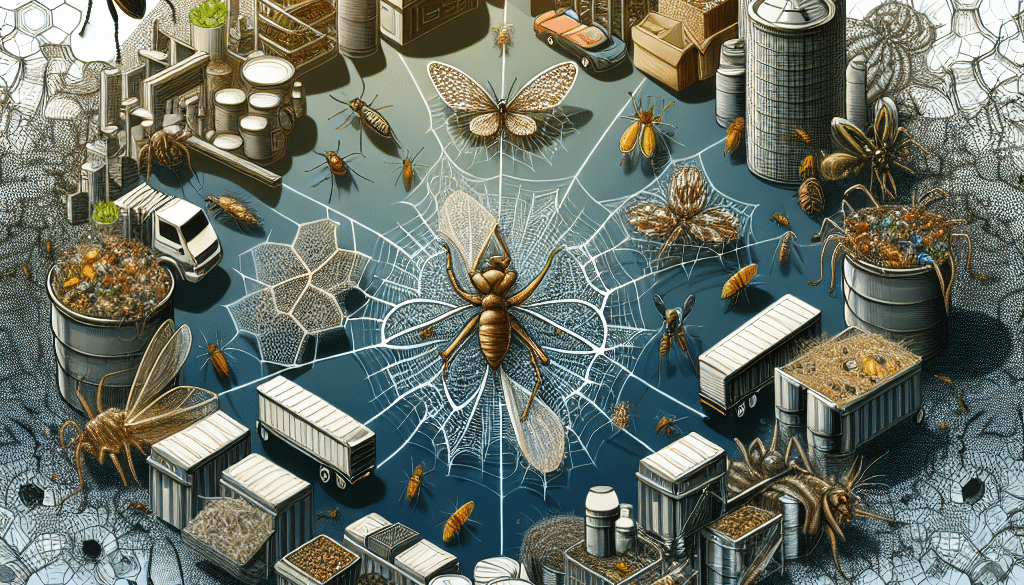Sustainable Ingredients: Insects Converting Waste into Protein
-
Table of Contents
- Sustainable Ingredients: Insects Converting Waste into Protein
- The Rise of Entomophagy and Insect Farming
- Turning Waste into a Resource
- Environmental and Nutritional Benefits
- Case Studies and Success Stories
- Challenges and Considerations
- Conclusion: Embracing Insects for a Sustainable Future
- ETChem: Your Partner for High-Quality Protein Products
Sustainable Ingredients: Insects Converting Waste into Protein

The quest for sustainable food sources is more pressing than ever as the global population continues to grow and the environmental impact of traditional agriculture becomes increasingly evident. One innovative solution that has been gaining attention is the use of insects to convert organic waste into high-quality protein. This approach not only addresses the issue of waste management but also provides an eco-friendly alternative to conventional animal protein sources.
The Rise of Entomophagy and Insect Farming
Entomophagy, the practice of eating insects, is not new. Many cultures around the world have been consuming insects for centuries due to their nutritional benefits and availability. However, the modern concept of insect farming for protein production is a relatively recent development that is gaining momentum as a sustainable food production method.
- Insects require significantly less land, water, and feed compared to traditional livestock.
- They emit fewer greenhouse gases and can be farmed vertically, reducing the spatial footprint.
- Insects can be fed with organic waste streams, thus reducing the amount of waste going to landfills.
Turning Waste into a Resource
Insects have the remarkable ability to feed on a variety of organic waste materials, including food scraps, agricultural by-products, and even manure. By doing so, they can upcycle low-value waste into high-value protein and other nutrients.
- Black soldier fly larvae are particularly efficient at converting waste into biomass.
- Mealworms can consume polystyrene and other types of plastic, potentially aiding in waste reduction.
- The frass (insect waste) produced during the process is a valuable organic fertilizer.
Environmental and Nutritional Benefits
The environmental benefits of insect farming are complemented by the nutritional advantages of insect protein. Insects are rich in protein, essential amino acids, vitamins, and minerals, making them a nutritious alternative to traditional meat.
- Insect protein contains all nine essential amino acids required by humans.
- They are a good source of vitamins such as B12, which is often lacking in plant-based diets.
- Insects are high in healthy fats, including omega-3 and omega-6 fatty acids.
Case Studies and Success Stories
Several companies and initiatives around the world are demonstrating the viability of insect-based waste conversion. For example:
- AgriProtein, a company in South Africa, uses black soldier fly larvae to recycle food waste into animal feed.
- Entocycle in the UK is developing an automated insect farming system to produce sustainable protein for animal feed.
- In Belgium, Millibeter converts organic waste into raw materials using the black soldier fly.
Challenges and Considerations
Despite the potential benefits, there are challenges to the widespread adoption of insect protein. Consumer acceptance, regulatory hurdles, and scaling up production to meet global demand are among the issues that need to be addressed.
- Consumer attitudes towards eating insects vary greatly across cultures and regions.
- Regulations regarding the use of insects in food and feed are still under development in many countries.
- More research is needed to optimize farming techniques and ensure the safety and quality of insect protein products.
Conclusion: Embracing Insects for a Sustainable Future
The use of insects to convert waste into protein offers a promising solution to some of the most pressing environmental and food security challenges of our time. By embracing this innovative approach, we can reduce waste, mitigate the environmental impact of traditional agriculture, and provide a sustainable source of high-quality protein. As technology advances and societal attitudes evolve, insects are poised to play a significant role in the future of sustainable food production.
ETChem: Your Partner for High-Quality Protein Products
If you’re looking for sustainable and high-quality protein solutions, ETChem is your ideal partner. With a wide range of collagen products derived from various sources, ETChem ensures that your protein needs are met with the utmost attention to quality and sustainability. Their expertise in the industry makes them a trusted supplier for businesses looking to innovate in the field of protein products.
About ETChem:
ETChem, a reputable Chinese Collagen factory manufacturer and supplier, is renowned for producing, stocking, exporting, and delivering the highest quality collagens. They include marine collagen, fish collagen, bovine collagen, chicken collagen, type I collagen, type II collagen and type III collagen etc. Their offerings, characterized by a neutral taste, instant solubility attributes, cater to a diverse range of industries. They serve nutraceutical, pharmaceutical, cosmeceutical, veterinary, as well as food and beverage finished product distributors, traders, and manufacturers across Europe, USA, Canada, Australia, Thailand, Japan, Korea, Brazil, and Chile, among others.
ETChem specialization includes exporting and delivering tailor-made collagen powder and finished collagen nutritional supplements. Their extensive product range covers sectors like Food and Beverage, Sports Nutrition, Weight Management, Dietary Supplements, Health and Wellness Products, ensuring comprehensive solutions to meet all your protein needs.
As a trusted company by leading global food and beverage brands and Fortune 500 companies, ETChem reinforces China’s reputation in the global arena. For more information or to sample their products, please contact them and email karen(at)et-chem.com today.




